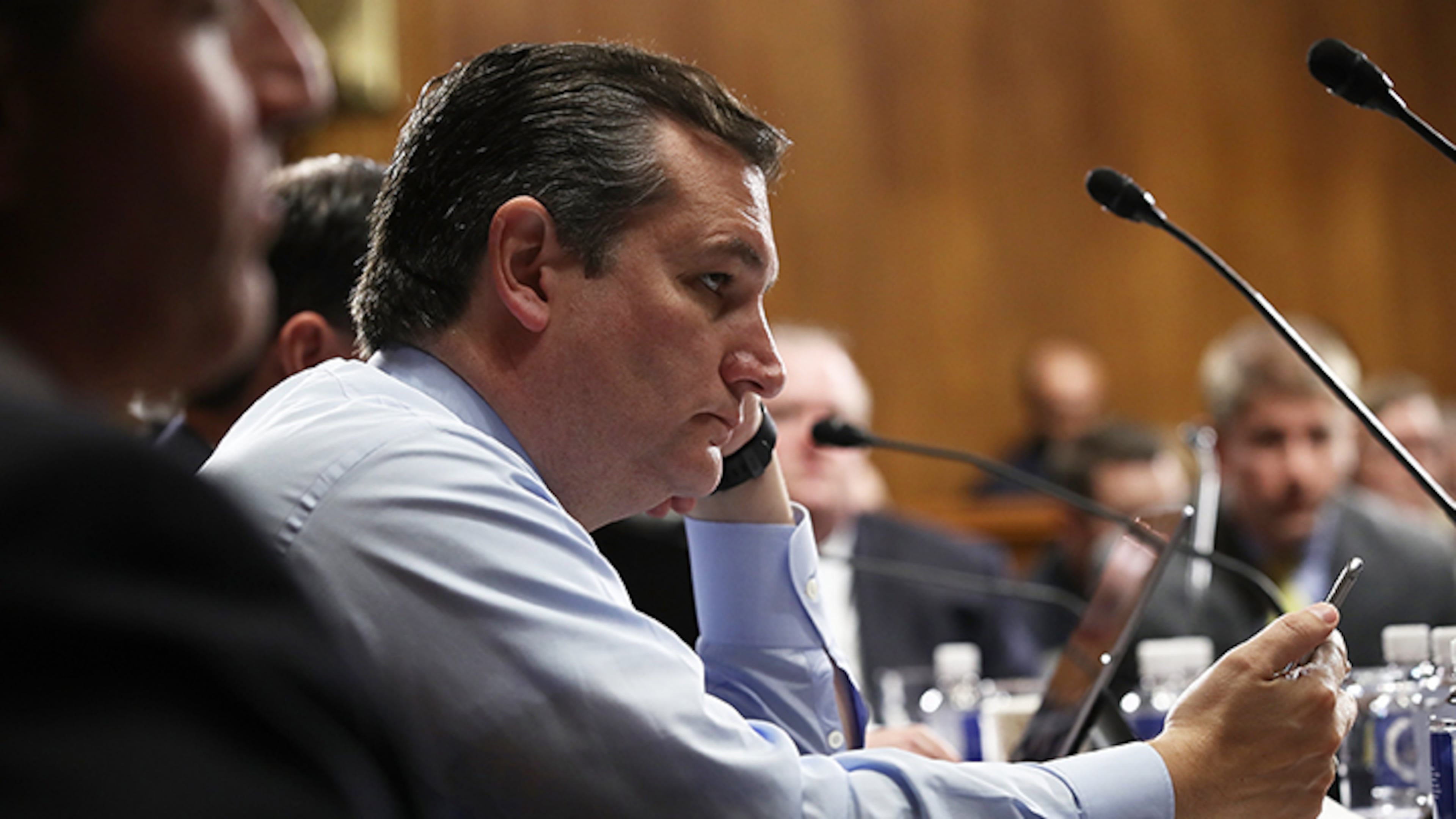Ted Cruz proposes using assets seized from El Chapo to fund border wall

As President Donald Trump struggles to persuade Congress to pay for his oft-promised border wall and Mexico continues to insist it will not spend a dime on the project, Sen. Ted Cruz has come up with another idea.
The Texas Republican introduced a bill Tuesday that would use assets seized from Joaquin "El Chapo" Guzman and other drug lords to pay for the wall and bolster border security.
The proposal, first reported by Axios, would repurpose $14 billion in assets that the government is seeking from the notorious Mexican drug kingpin to complete the wall.
The name of the measure is "Ensuring Lawful Collection of Hidden Assets to Provide Order Act," or ELCHAPO.
"Fourteen billion dollars will go a long way toward building a wall that will keep Americans safe and hinder the illegal flow of drugs, weapons and individuals across our southern border," Cruz said in a written statement announcing the proposal.
Cruz's suggestion may offer an innovative way for Trump to work around his difficulties getting Congress or Mexico to fund his longtime campaign promise. Mexico's chief diplomat has long said the country would play no part in helping to build the wall, calling it a "hostile" act. Congress, meanwhile, has balked at Trump's efforts to include funding in a must-pass government spending bill this week.
Cost estimates for the wall have ranged dramatically, with some experts predicting it could cost up to $25 billion and Democrats putting the price tag at a whopping $66.9 billion. But Trump has insisted he could build it for $10 billion or less.
Some analysts have also raised doubts about whether El Chapo's assets actually reach as high as $14 billion, though most predict his fortune is in the billions.
Even beyond the funding issues, most Texas Republicans in Congress have expressed opposition to the idea of building a wall along the state's southern border, urging the president to use a more "holistic approach" to border security.
But Cruz has generally supported the idea. While competing against Trump in the GOP primary, Cruz also suggested building a wall, prompting Trump to accuse the Texan of stealing his idea. Now that the two are working together more closely, the senator could help Trump achieve the promise that became a central feature of his campaign rallies.
"Ensuring the safety and security of Texans is one of my top priorities," Cruz said. "We must also be mindful of the impact on the federal budget. By leveraging any criminally forfeited assets of El Chapo and his ilk, we can offset the wall's cost and make meaningful progress toward achieving President Trump's stated border security objectives."
After evading authorities for decades, Guzman was extradited to the United States from Mexico earlier this year and immediately hit with a bevy of charges by the Justice Department. The longtime leader of the Sinaloa cartel, one of the world's largest narcotics organizations, Guzman pleaded not guilty to a 17-count indictment.
Democrats from border districts remained unmoved by Cruz's proposal. Rep. Beto O'Rourke, the El Paso Democrat challenging Cruz for his Senate seat in 2018, described the concept as just another part of a broader effort to "stir anxiety and fear" about the border and said no state would stand to lose more than Texas if the wall is built.
"It doesn't change the facts, which is that the border has never been safer, we have record low apprehensions, El Paso is one of the safest cities, the U.S. cities along the U.S.-Mexico border are safer than the average U.S. city in the interior," O'Rourke said. "Any way you look at it, it's clear that there's no need for a wall."
Even though Cruz's effort would avoid using a government spending bill to fund the wall, O'Rourke argued it would still be an "extraordinary waste" of resources because any money that is seized from El Chapo can go to other uses instead.
Cruz's idea similarly made no difference to Rep. Henry Cuellar, D-Texas, who describes the border wall proposal as "a 14th-century approach to a 21st-century challenge."
"I appreciate Sen. Cruz thinking creatively, but the problem with the wall is not a fiscal one; it is a physical one," Cuellar said in a written statement. "It would involve the government seizing private property, and cause environmental and economic damage. We need to invest in evidence-based, smart security measures, and empower border communities and local border patrol commanders to apply a tailored approach."

